
Biography
Dr. Verónica Ruiz Abou-Nigm is the principal investigator of the MiLA project. Verónica is Senior Lecturer in International Private Law at Edinburgh Law School. Professionally qualified as a solicitor in Uruguay, after extensive practice in shipping law in the early stages of her career, Verónica became a full-time academic after completing her postgraduates studies at Edinburgh Law School (LL.M.; Ph.D). Her research bridges disciplines, focusing on the intersections between private international law and various other disciplines, within and beyond law. The common thread of her research is pluralism, from a perspective that embraces diversity: legal, cultural and methodological diversity, and enables the development of legal knowledge that fosters better cross-border cooperation and understandings. In particular, her research develops ideas in which private international law can foster cosmopolitan integration, contributing to accommodate the richness of different legal traditions and cultures in cross-border cases. Verónica has extensive research experience across jurisdictions in the UK, Europe and South America. She has published widely in the field of private international law. She is Vice President of the European Law Faculties Association.

Biography
Dr Leandro Mancano is Lecturer in EU Law at Edinburgh Law School and Programme Director of the LLM in European Law. Leandro’s main research interests lie in EU Constitutional Law, EU Fundamental Rights Law, the law and policy of the EU Area of Freedom Security and Justice. He teaches and has been course organizer of courses in EU Law (Ordinary and Hons), EU Criminal Law and EU Immigration Law (LLM) and EU Fundamental Rights Law (LLM).
Leandro’s publications focus on the interaction amongst different areas of European law and policy, such as crime, migration, and human rights. His first monograph analyses the legislative and judicial approach of the EU to deprivation of liberty in the fields of substantive and procedural criminal law, asylum and immigration, citizenship and free movement.
Before joining the University of Edinburgh, Leandro received his PhD from Scuola Superiore Sant’Anna (Pisa). He has been visiting researcher at Queen Mary University of London, Université Libre de Bruxelles and the University of Copenhagen. Leandro is the UK’s Deputy Contact Point for the European Criminal Law Academic Network (ECLAN).
Leandro is regularly involved in public engagement with national and international institutions, has drafted policy papers and provided evidence to the Scottish Parliament.
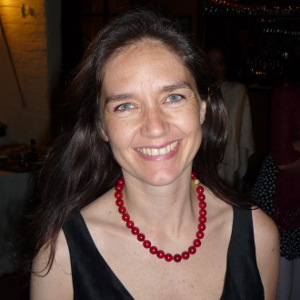
Biography
Dr. Soledad Garcia Ferrari is a Senior Lecturer at ESALA University of Edinburgh. Professionally qualified in Architecture and Urbanism in Uruguay, her research focuses on current processes of urban development and regeneration in Latin America and Europe. She was awarded her PhD in Urban Studies in 2007 at the School of the Built Environment Heriot-Watt University. Soledad has extensive expertise on research in recent planning strategies in Medellin exploring to what extent these have contributed to social equity and wellbeing (Newton Fund). She is currently leading research focused on co-production of adaptation strategies for climate-related risks in Mexico (ESRC-CONACYT & Newton Fund). She taught in the Faculty of Architecture in Montevideo, the University of Seville and was invited speaker to the School of Architecture, CEU in Madrid. She is currently University of Edinburgh Dean Latin America and Director Edinburgh University Centre for Contemporary Latin American Studies.

Biography
Evelyn Ávalos is a PhD Student in Human Geography at the Geography and Environmental Sciences Department, University of Dundee. Her background is in International Development and Law with emphasis in Human Rights, Migration and Trade. She graduated as a Lawyer at Universidad Centroamericana “Jose Simeon Cañas” [cum laude] in El Salvador, following a master in International Development (Globalisation, Trade and Industry) at the University of Manchester. Now she is doing a PhD for the project: “The impact of protracted refugee displacement & disrupted intergenerational relations on the secure and healthy futures of older people in Uganda”.
Before starting a PhD, Evelyn worked in different organisations, including: The Government of El Salvador at the Ministry of Economy, World Bank Group country office in El Salvador, United Nations and the Inter-American Commission on Human Rights.
As a research assistant for the MiLA project Evelyn has been working on MiLA's mapping that is going to be presented in this workshop. Her presentation is focused on Mexico as a country of transit.
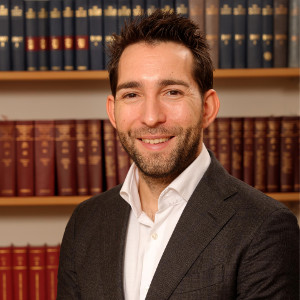
Biography
Dr. Diego Acosta is a leading international expert on International, European and comparative Migration law. He is the author of more than 50 publications and his latest monograph is entitled: The National versus the Foreigner in South America. 200 Years of Migration and Citizenship Law (Cambridge University Press, 2018). He has also participated as co-investigator in the project Prospects for International Migration Governance (MIGPROSP) which the ERC funded for the 2014-2019 with 2.1 million euros. He has also been one of the authors of the proposal for a Model International Mobility Convention led by Columbia University in New York. Dr Acosta has been visiting fellow at several institutions including the University of New York (NYU) and the European University Institute (EUI) in Florence. He has advised various governments, international organisations, law firms, political parties and NGOs in the USA, Europe, Latin America and Africa.
Abstract
Since the turn of the century, and particularly until 2016, South American governments and regional organisations adopted the world's most open discourse on migration and citizenship. At a time when restrictive choices were becoming increasingly predominant around the world, South American policymakers presented their discourse as being both an innovative and exceptional 'new paradigm' and part of a morally superior, avant-garde path in policymaking. This presentation provides a critical examination of the South American legal framework through a historical and comparative analysis in order to assess whether the laws are truly innovative and exceptional, as well as evaluating their feasibility, strengths and weaknesses, in light as well of the recent important emigration of close to 3 million Venezuelans, most of them to other countries in South America.
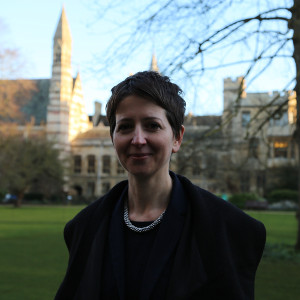
Biography
Christina Boswell is Professor of Politics in the School of Social and Political Science, University of Edinburgh. Her main area of research is the relationship between knowledge and policy, in particular the role of expert knowledge in policy-making and political communication on migration. She has also written extensively on immigration and asylum policies in the EU, UK and Germany. Her books include Migration and Mobility in the EU (with Andrew Geddes, 2012); The Ethics of Refugee Policy (Routledge, 2006/2017); The Political Uses of Expert Knowledge: Immigration Policy and Social Research (CUP, 2009/2012); and Manufacturing Political Trust: Targets Performance and Measurement in Public Policy (CUP, 2018), which focuses on the use of targets in UK immigration/asylum policy since 2000. She is currently working on a co-authored book on States of Ignorance, which will explore how public authorities in the UK, France and Germany have monitored unauthorised residence since the 1960s. Christina currently serves as Dean of Research for the College of Arts, Humanities and Social Sciences, and she is also Chair of the Scottish Government’s new Expert Advisory Group on Migration, which was established in 2018.
Abstract
Christina will discuss migration research at the University of Edinburgh, reflecting on the evolution of cross-School collaboration in this area since 2006 (when she arrived at the University). She will consider the challenges and opportunities around different types of collaboration, and set out possible approaches for consolidating a research cluster in this area.
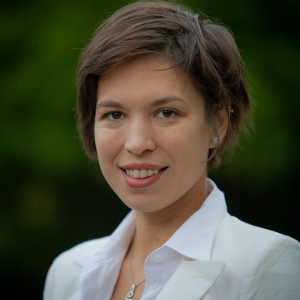
Biography
Leiza Brumat is a Research Fellow at the Migration Policy Centre of the European University Institute. She is an International Relations analyst who was awarded a PhD in Social Sciences by Flacso –Argentina with a thesis on migration policies and the free movement of persons in Mercosur. Before joining the EUI she was a lecturer in International Relations, Regional Integration and International Organizations in UADE and in Universidad de San Andrés, Buenos Aires, as well as a Research Fellow for the National Council of Scientific and Technical Research (CONICET) of Argentina. She was visiting scholar in Università di Bologna and visiting researcher in Universidad Complutense de Madrid. She has been a consultant for the IOM, the South American Conference on Migration and for the MERCOSUR, among others. She has published on regional integration, migration governance and the free movement of persons.
Abstract
In this presentation, I will discuss the South American position in the negotiations of the GCM and their relation to main characteristics of migration governance in South America, and how these are linked in the prevalent models of regional integration. I will finally comment on the challenges for the implementation of the GCM in the current political scenario.

Biography
Lawyer (University of Buenos Aires). PhD in Human Rights (University of Valencia, Spain). Master Degree in International Migration and Migration Law (European University of Madrid). He is currently the Coordinator of the Migration & Asylum researching and advocacy Program at the Institute for Justice and Human Rights of the National University of Lanús (UNLA, Argentina) and the Director of the Specialization on Migration, Asylum and Human Rights (UNLA). Former Vice-Chairperson of the United Nations Committee on the Rights of Migrant Workers and Their Families (CMW). Professor on Migration & Human Rights at the Master on Human Rights (UNLA), Law School & Postgraduate Diplomate on Migration and Refugees (University of Buenos Aires) and Master in Human Rights and Democratization (National University of San Martin). He is a Consultant of UNICEF offices (Latin America and others) on the rights of children in the context of migration. He has been consultant of ILO and UNFPA on initiatives related to migrant workers and migrant women respectively. Member of Global Migration Policy Associates (GMPA) and member of the Advisory Board of the UN Global Study on Children Deprived of Liberty. Former Coordinator of the Legal Clinic for Immigrants and Refugees’ Rights (University of Buenos Aires) and Coordinator of the Program on Economic, Social and Cultural Rights (CELS, Argentina). Author and editor of numerous publications on migration policies and human rights.
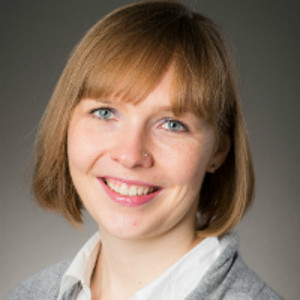
Biography
Joanna is a lecturer (assistant professor) in Economics at the Department of Economics, the University of Bath, which she joined after completing her education at the University of Cambridge and the University of Edinburgh. She is a labour economist with particular interests in migration, education and crime. She has published work on the impact of parental employment abroad on educational performance of pupils and their peers. Her ongoing projects include the analysis of migration as a channel of technology adoption, the effects of Brexit on hate crime, labour market performance of bilinguals with immigration background as well as the effects of maternity leave packages on the uptake of leave.
Abstract
The United Nations estimates that in 2017 the stock of migrants in the world reached 258 million; 14.6% of them came from Latin America and the Caribbean. Migration is an increasingly debated policy issue in sending as well as receiving countries as large scale movement of people poses challenges – economic, societal and political. However, when appropriately managed, it also creates opportunities. Joanna will bring issues surrounding migration to the fore in an attempt to paint a balanced picture of the consequences of people’s movement. To this end she will provide an overview of the economic literature on the diverse impacts of economic migrants on host and home countries and place it in the context of the Latin American economies. She will outline what we know about the effects migration has on labour markets and the economy in sending and receiving countries, including wages and employment, investment, technology creation and adoption, as well as public service provision. She will also touch upon the societal aspects of the population flows, such as assimilation of immigrants in host countries and the influence migration has on families left behind.
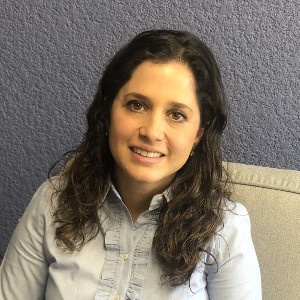
Biography
Alethia Fernández de la Reguera, Ph.D. is an Associate Researcher at the Institute of Legal Research at the National Autonomous University of Mexico (UNAM), where she also coordinates the Office of International Affairs. Mostly, her research focuses on the study of gender based subjectivities, bureaucracy and violence at the Mexican southern border. She coordinates the Erasmus M.A. Program “Euroculture” at UNAM and for the last four years has been a guest scholar at the Erasmus M.A. Program “Transnational Migrations” at the University of Lille, France. She obtained her Ph.D. with honors in Humanistic Studies from Tecnológico de Monterrey, with a dissertation titled “Autonomy processes for decision-making of Mexican female migrant workers returning from the U.S.”. She holds an M.A. in European Studies from the University of Amsterdam and a B.A. in International Relations from Tecnológico de Monterrey. Currently, she is an elected member of the Conacyt-National System of Researchers. She collaborates with the Universitary Seminar on Internal Displacement, Migration, Exile and Repatriation at UNAM. Also, she is part of the UNESCO-Tec Chair on Ethics and Peace Studies and a board member of the Institute for Women in Migration based in Mexico City.
Abstract
Institute of Legal Research - UNAM
Female Migrants and Human Rights Violations. The Detention Experiences of Central - American Women in the Southern Borden on Mexico
The annual percentage of Central American women migrants crossing the border with Mexico has been reduced in the last 10 years due to the violence at the Mexican-Guatemalan border area and the various risks faced by female migrants. Nevertheless, few academic studies focus on the journeys of migrant women in the Central American–U.S. migrant corridor, especially, on how and under which conditions they undergo detention and deportation. In this article, I present some findings based on ethnographic research about the conditions, discourses and violations of human rights that women experience at the Immigration Detention Center in the southern Mexican border. The daily interaction between women and immigration officers at the Center reinforces the precariousness and vulnerabilities of female migrants, who despite the geographical proximity between their homeland and Mexico, arrive with limited resources and need to make use of complex strategies to avoid deportation. Based on different testimonies on detained female immigrants I show how structural and cultural violence determine not only migrant journeys, but are key elements in the operation of an immigration bureaucracy that dehumanize migrants and limit the possibilities for women to exercise their right to seek asylum.
Keywords: migrant women, human rights, southern border of Mexico, detention, bureaucracy.

Biography
Luciana Gandini holds a Ph.D. in Social Science with a specialization in Sociology (COLMEX) and currently works as a full-time researcher at the Legal Research Institute, UNAM, in the area of Sociology of Law and is a member of the National System of Researchers (SNI, CONACyT). She is Coordinator of the University Seminar on Studies on Internal Displacement, Migration, Exile and Repatriation (SUDIMER) of the UNAM. She is founder of the Institutional Research "Rights, Migrations and Mobilities" (IIJ-UNAM) and is founder and was Technical Manager of the Migrāre Thematic Network "Migrations and Mobility" (CONACyT) during 2017; and was Co-coordinator of the Scientific Group on Labor Markets (Mexican Society of Demography). In 2018, she received the award "Reconocimiento Distinción Universidad Nacional Jóvenes Investigadores 2018" in the category of research in Social Sciences by the UNAM. In recent years, her research has been related to the following topics: international migration, development and human rights; voluntary and involuntary migration, forced migration; Venezuelan exodus and migrant caravans; return migration; labor markets and life course; and qualitative and quantitative social research methods lgandini@unam.mx
Abstract
New mobilities in contexts of crisis. Venezuelan migration in Latin America and Caravans from the Caribbean and Central America in Mexico
In recent years, new migration dynamics and strategies have taken place in Latin America demanding different governmental responses for regulation and social integration. In this presentation I highlight two recent cases: Venezuelan migration and both Central American and Caribbean migrant caravans in Mexican territory.
The unprecedented political, economic and social collapse of Venezuela resulted in a massive and sudden migration in Latin America. This presentation explores incorporation processes of massive flows fleeing from a humanitarian crisis to different countries, some of them with little or no experience as host countries. Responses in destination points vary between the lack of proper protection to legal certainty. For example in one hand Colombia, Chile, Peru and Brazil have mostly improvised specific instruments and on the other hand Mexico, Uruguay and Argentina have enforced regulatory frameworks, some of them integrating a human rights´ perspective. Some of the relative humanitarian and welcoming migration policies in Latin America for this specific flow need to be further explored as first steps of good practices.
A more recent case concerns the migrant caravans from Central American and the Caribbean in Mexico, which have made visible a historical transit flow currently in a crisis context. Even though the new Mexican administration has promised a regional development plan to expand labor opportunities for both migrants and potential migrants, in the last few months regulation strategies have failed to manage migration within a secure and human rights approach, specially because a significant number of immigrants arriving in Caravans require international humanitarian protection.
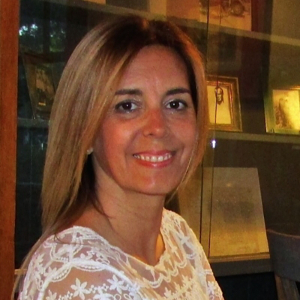
Biography
Nuria Gonzalez-Martin is Professor and Senior Researcher at the Legal Research Institute (IIJ), National Autonomous University of Mexico (UNAM). PhD in Private International Law, Pablo de Olavide University, Seville, Spain. From 2012 to 2016 she was Visiting Scholar and Visiting Fellow at Stanford Law School and CISAC –Stanford University-. In 2015 she was selected as a Weinstein JAMS International Fellow. She is the author of many publications on Family Law, Comparative Law, Private International Law, and Alternative Dispute Resolution. She is also external counsellor to Mexico’s Foreign Affairs Ministry and a certified family mediator. She is a member of a wide diversity of associations such as the International Academy of Comparative Law (IACL) or the American Association of Private International Law (ASADIP) and member of several international scientific committees and participates in various Experts Groups of The Hague Conference on Private International Law and International Social Service to create a Global Network of International Family Mediation. Ignacio M. Altamirano Award in 2000 and Young Scholar Award, in Social Studies, UNAM, 2008.
Abstract
We live in a world with continuous and unstoppable social transformations due to globalization; economic crises, migration, poverty, unemployment, etc., which have generated different issues (social, international, etc) that need to be considered and addressed; specific measures need to be implemented to resolve this multiple conflict situation.
The ever growing number of border crossings by unaccompanied minors, represents a startling phenomenon in recent times that calls for, once again, integral international protection, given the dangers that children face when crossing alone.
The border between Mexico and the United States (3,200 kilometers long) provides a clear example of unaccompanied minor migrants crossing borders as well as of family separations; this leaves -yet again- the most vulnerable part of a family group in a state of helplessness.
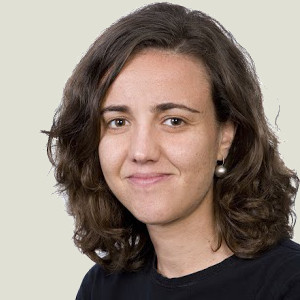
Biography
Maia Güell received her PhD in Economics at the London School of Economics in 2000. Right after graduate school, she was a visiting lecturer at Princeton University and then moved to Universitat Pompeu Fabra, where she was first an Assistant Professor and then an Associate Professor (with tenure). In 2007, she was appointed Professor of Economics at the University of Edinburgh. Since 2018, she is Deputy Head of the School of Economics. She is also a Research Affiliate in the Labour Economics Programme of CEPR, FEDEA and IZA and serves on various committees including the European Economic Association Women in Economics Committee and the Academic Committee of Data for Research in Social Sciences at the Barcelona GSE-Statistical Institute of Catalonia. Maia's research interests are in theoretical and empirical labour economics. She has studied extensively the effect of labour market regulations on labour market outcomes, gender differences in the labour market and the study of intergenerational social mobility and inheritance using the information contained in surnames. Current projects include the study of intergenerational social mobility and migration.
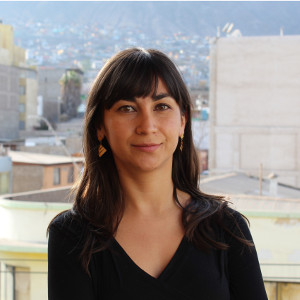
Biography
Migrant woman, based in Antofagasta since 2016 where she has been Responsible for Education an Interculturality at Jesuit Migrant Service. Journalist with a mention in Anthropology from the Rosario´s University Bogotá-Colombia, candidate for Master in Social Sciences at the University of Antofagasta-Chile. Experience in working with civil society organizations focused on issues of Human Rights, Human Mobility, Cultural Studies, Intercultural Communication and Gender Studies.
Twitter: @clo_leon
Abstract
The popular sentence "you find a Colombian anywhere in the world" may sound familiar because the history of Colombia as a migrant expelling country does not go unnoticed. But ¿when, how and why does it become a political, public and controversial issue in Chile? These are some of the questions that will be discussed in the presentation. Furthermore, we will approach the inclusion/exclusion actions and policies that have been developed in one of the few countries that did not adhere to the International Pact for Migration.
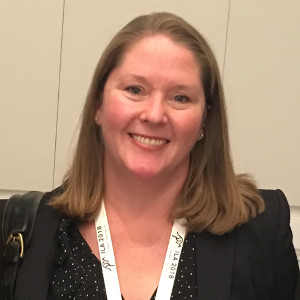
Biography
Dr. McCall-Smith is a lecturer in Public International Law and Programme Director for the LLM in Human Rights at the University of Edinburgh Law School.
Her research interests include: the law of treaties; treaty implementation and interpretation in national legal systems; the role of treaty bodies in developing human rights law; and the link between customary and treaty law. She is also interested in the connections between public-private law governance of supply chains, particularly in the role of preventing modern slavery. In this context, she has explored the opportunities to facilitate safer migration paths through the Global Compact for Migration.

Biography
Abogada con especialización en derecho administrativo, ha trabajado durante catorce años en torno a la defensa y promoción de Derechos Humanos en Colombia con población víctima del conflicto socio político y armado, principalmente víctimas de crímenes de Estado, hace parte del grupo de trabajo de la Corporación Jurídica Libertad como coordinadora del equipo de defensa del territorio en Medellín y derecho a la ciudad, actualmente se encuentra adelantando estudios de posgrado en la Maestría en Educación y Derechos Humanos en la Universidad Autónoma Latinoamericana.
Abstract
Desplazamiento interno en Colombia y crisis humanitaria en Venezuela
Retos para el Estado Social de Derecho
Colombia ha vivido un conflicto social, político y armado por más de 50 años, en el desarrollo de este, se han implementado diferentes modalidades de agresión en contra de la población, una de las principales ha sido el desplazamiento forzado, que ha dejado más de 7,7 millones de víctimas en todo el país (ACNUR Colombia, 2018, pág. 1).
Si bien desde la década de los 90´s se han generado normativas para la atención y prevención del desplazamiento forzado, así como para la estabilización socioeconómica de las víctimas de manera real y efectiva, se ha presentado un alto nivel de incumplimiento por parte del Estado para el goce efectivo de los derechos de esta población, pues la gran mayoría de esta, se encuentra en graves condiciones de vulnerabilidad y pobreza.
Atendiendo a que Colombia se encuentra en un contexto de transición, las cifras de desplazamiento durante el año 2017 y 2018 resultan alarmantes, la situación tiende a agravarse y en algunas zonas a agudizarse el conflicto, generando nuevos desplazamientos individuales y colectivos, ello es muestra de la falta de garantías de no repetición por parte del Estado y en general en la implementación de los acuerdos de paz.
De otro lado, y de cara al contexto regional, la crisis que atraviesa Venezuela tendría que ser observada en doble vía, una de carácter político y otra de carácter humanitario, Colombia ha sido receptor en los últimos años de población migrante proveniente del vecino país, situación que debe ser atendida por el Estado Colombiano, más allá de las posibles intervenciones militares en dicho territorio.
En la actualidad, los retos para Colombia son: revisar sus políticas en materia de prevención y restablecimiento de derechos, atendiendo al contexto de la implementación de los acuerdos de paz y de igual manera garantizar los derechos de la población migrante proveniente de Venezuela que, para septiembre de 2018, se registró un número de 1.032. 016 (Migración Colombia, Ministerio de Relaciones Exteriores p.4).
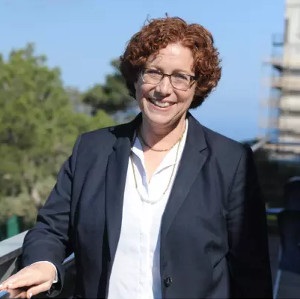
Biography
Dr. Nurit Novis-Deutsch is a lecturer and researcher in the Department for Learning, Instruction and Teacher Education at the University of Haifa in Israel. She completed two Masters' programs (Clinical Psychology at the Hebrew University in Jerusalem and Jewish Philosophy at the Schechter Institute of Jewish Studies in Jerusalem) and earned a PhD in Psychology at the Hebrew University. She then became a postdoctoral Fulbright scholar at UC Berkeley in California, where she was subsequently Goldman Visiting Professor. She currently researches, teaches and publishes on social cognition and its educational implications.
Her research concerns the ways in which people create meaning and make sense of their identities within multiple social contexts, and the modes through which they manage contradictory frames of meaning. Values, morality, religion, culture, and identity are explored in her studies as significant points of convergence between the collective and the personal, with a focus on intra-psychic and inter-group conflicts between them. Currently, her main research projects focus on Pluralistic Reasoning; Theory of Mind and outgroup dehumanization; Ultra-Orthodox Jews negotiating higher education; religiosity among young adults; and Holocaust education.
Honors and prizes include the Golda Meir Fellowship for outstanding PhD students; the Fulbright Postdoctoral Fellowship for research in the U.S. as a Rabin Fellow; the Goldman Fellowship for visiting Israeli lecturers, four "Excellent teacher" awards at Hebrew University’s Social Sciences Faculty, and the American Education Research Association (AERA) International Relations Committee Award.
Her recent work has been published in Religion (2019), Theory & Psychology (2018), Teaching and Teacher Education (2018), Studies in Higher Education (2018), Teaching in Higher Education (2016), Journal for the Theory of Social Behaviour (2015) and other journals and edited volumes.
Abstract
On the implications of inhabiting a universe or a pluriverse: Both/and reasoning and the embracement of pluralism
Pluralism – the valuing of multiplicity – has long been recognized as a key concept in philosophy and political science. However, research on how people come to think pluralistically and how this affects their embracement of diversity is sparse. By "thinking pluralistically" I refer to an attitude which favors "both/and" reasoning over "either/or" reasoning, expanding the horizons of attitudes, beliefs, behaviors and values which are considered worthy. Pluralistic thinking is neither the reverse of prejudice, nor synonymous with multiculturalism, and deserves a conceptual space of its own.
I will propose a model for conceptualizing pluralistic thinking as a combination of personal and cultural factors. The model posits the activity of endorsing multiplicity and complexity as an individual-difference factor within given cultural contexts, and as domain-dependent. The model I developed posits five drivers of pluralism: cognitive attributes, motivational factors (emotional and personality traits), a developmental trajectory, personal experience, and socio-cultural surround.
I will then present a set of scales - The Magic Wand Survey - that I developed for assessing the level and domains of pluralistic reasoning among adults, adolescents and children. Next, I will present the empirical results of studies that utilized these scales and discuss their implications, suggesting venues for further exploration of the concept of pluralistic thinking and some of its possible applications.
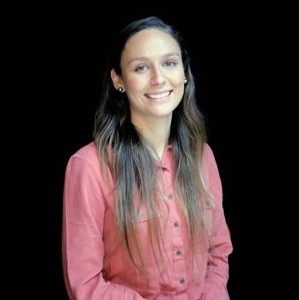
Biography
Valentina is one of the Research Assistants at MiLa. She is a first year PhD Law Student at University of Edinburgh, studying 'Human Rights Law in Chilean domestic courts: Situating Migration and Refugee Issues’. Valentina was awarded an LLM (2018) in Human Rights, with distinction at University of Edinburgh, with the work-based project dissertation for Amnesty International, Scotland ‘Human Rights Standards for Assessing the New Scots Refugee Integration Strategy 2018 - 2022.’ She is also a qualified lawyer by the Chilean Supreme Court and holds a bachelor’s degree in Legal and Social Sciences from the University of Concepción, Chile. In 2015, she funded the Legal Clinic for Migrants at University of Concepción, which she coordinated until 2017.
Abstract
The “Legal Clinic with special attention to migrants” was created in 2015 at the Faculty of Juridical and Social Sciences of Universidad de Concepción in the middle of the tensions that Chile was facing at the time regarding migration issues. At the time, there was a very high increase of number of immigrants residing in Chile. According to estimations of the Chilean National Institute of Statistics (INE, for its name in Spanish ‘Instituto Nacional de Estadísticas’) by 1992, 0.8% of the population where migrants, which equaled 105.070 migrants over a total of 13.4 millions of inhabitants. This figure increased to 1.3% by 2002 and to 4.4% in 2017 . Moreover, INE estimated that by the 31st of December of 2018 there were 1.251.225 foreigners living in the country, over a total of 18.8 millions of inhabitants , which equals a 6.7% of the population residing in Chile.
The country was not prepared to face this change, neither legally nor socially. Concerning the legal framework, Chile still applies a migratory legislation that was created during the dictatorship of General Pinochet, the “Decreto Ley 1.094” from 1975. This legislation is characterised for regarding foreigners as a menace to the National Security of the State, for granting wide discretionary powers to migration authorities and for not recognising any human rights to migrants. In addition, scholars and non-governmental organisations have identified discriminatory and racist attitudes of public agents and civil society towards migrants. As a consequence, in Chile, human rights violations are constantly committed against migrants.
Despite of the state of affairs in the national legal framework, some legal tools may be used in Chilean judicial and administrative instances to protect the rights of migrants. In this regard, Chile is party to all the international and regional treaty bodies covering international migration law and protecting the human rights of migrants. These rights are indirectly incorporated into the domestic level via article 5.2 of the Political Constitution of Chile, which expressly recognises that human rights constitute a limit to the sovereignty of the State. As a consequence, certain human rights and principles, such as the right to a fair trial and the best interest of the child can be invoked through the interposition of habeas corpus, for defending the rights of migrants at the Chilean higher Courts. In addition, the migratory legislation grants particular actions that may be interposed in certain cases on behalf of administrative authorities. Nevertheless, these tools are unknown to most of the migrants residing in Chile.
The abovementioned motivated the creation of Legal Clinics that would contribute to the access to justice of migrants, being the “Legal Clinic with special attention to migrants” of University of Concepción one of them. This presentation will be focused on the experience of the founding and management of this Legal Clinic, its main goals and challenges and the lessons that can be obtained from it. Some of the challenges that will be mentioned will be referred to the difficulties that the legal Clinic had to face for covering the theoretical aspects of Chilean
Migration Law and practice, for being located in a city which was neither a border city, nor the capital of Chile (Santiago), and for gathering the necessary funding to exist. The presentation will also make reference to the inherent vocation contained in an institution as such, which is to promote the social role that law students can play by contributing to providing access to justice to those who are in a more vulnerable situation.
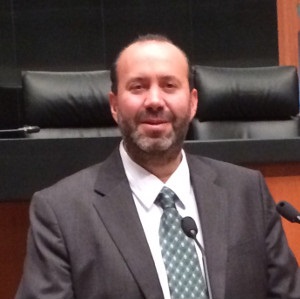
Biography
Dr. Jorge Alberto Schiavón professor of International Relations at the International Studies Department, CIDE (Centro de Investigación y Docencia Económicas) (1999–today), Coordinator (2013-today) of the Interdisciplinary Program on Migration at CIDE (CIDE-MIG), and President of CIDE Foundation (2017-today); Chair of the International Studies Department (2007-2010), Secretary General (Vice-Rector) of CIDE (2004-2007), Director of Development and External Affairs (2002-2004) of CIDE, and Director of the B.A. Program in Political Science and International Relations (2000-2001). President of the Mexican International Studies Association (AMEI in Spanish) (2011-2013) and Founding President of the Latin American Federation of International Studies Associations (FLAEI) (2012-2013).
Holds a Ph.D. in Political Science and International Affairs (University of California, San Diego, UCSD); M.A. in Political Science (UCSD); B.A. in International Relations (El Colegio de México); and Diploma in Public International Law (The Hague Academy of International Law, International Court of Justice). Member of the National Research System (SNI) in Mexico, level 2.
Author or editor of 17 academic books and 100+ articles and chapters on Mexican foreign policy, history of Mexican international relations, migration, sub-State diplomacy (paradiplomacy); public opinion and foreign policy; regional integration in Latin America and North America; institutions, decentralization, and federalism in Latin America and North America; U.S.-Mexico-Canada relations and Hemispheric Latin American relations; Mexican.
North American, and Latin American political systems and foreign policies. Has taught 80+ undergraduate and graduate courses, and participated in 400+ conferences and lectures in 40+ countries.
His most recent books are: Comparative Paradiplomacy (Nueva York, Routledge, 2019); La Política Exterior de México 2018-2024: Diagnóstico y Propuestas (coedited w/ Rafael Velázquez and Humberto Garza) (México: CIDE, UABC y UANL, 2018); Teorías de Relaciones Internacionales en el Siglo XXI: Interpretaciones críticas desde México (coedited w/ Adriana Ortega, Marcela López-Vallejo and Rafael Velázquez), second edition (México, CIDE, AMEI, BUAP, Colsan, UABC, UANL and UPAEP, 2016 (first edition 2014)); Balance y Perspectivas de la política exterior de México 2006-2012 (coedited w/ Humberto Garza and Rafael Velázquez), (México, El Colegio de México and CIDE, 2014); Perspectivas migratorias III: Los derechos políticos de los mexicanos en el exterior (coedited w/ Jorge Durand) (México, CIDE, 2014); North America’s Soft Security Threats and Multilateral Governance: A Post-Westphalian Pathway (coedited w/ Imtiaz Hussain) (New York, Palgrave-Macmillan, 2013); La política exterior de México 2012-2018: Diagnóstico y Propuestas (coedited w/ Rafael Velázquez), (México, AMEI, 2012); Las relaciones México-Estados Unidos: Prioridades constantes, modelos teóricos variables (México, BUAP, 2011); Perspectivas migratorias: Un análisis interdisciplinario de la migración internacional (coedited w/ Jorge Durand) (México, CIDE, 2010); Paradigmas y Paradojas de la política exterior de México 2000-2006, (Humberto Garza Elizondo, editor, and Rafael Velázquez Flores, co-coordinator) (México, El Colegio de México and CIDE, 2010); La proyección internacional de las entidades federativas: México ante el Mundo (México, Instituto Matías Romero-SRE, 2006); and, En busca de una nación soberana: Relaciones internacionales de México, siglos XIX y XX (coedited w/ Daniela Spenser and Mario Vázquez Olivera) (México, CIDE and Acervo Histórico Diplomático-SRE, 2006).
Abstract
Global Compact for Migration and Latin America
The presentation will underscore Mexico's participation in the negotiation and implementation of the Global Compact for safe, orderly and regular migration. It will argue that Mexico's migration policy, after signing the Compact, should follow the 4 Cs: Coherence (North/South), Consistence (human rights and rule of law oriented), Cooperation (origin, transit, destination, return), and Coordination (within country and between countries).
Cross-Disciplinary Migration Studies:
The presentation will analyze the different migration programs in Mexico, and argue that migration studies have to evolve with the changing migratory reality, developing from studying Mexican emigration to the United States from a disciplinary perspective to analyzing regional migratory systems (North and Central America and the Caribbean) from a comprehensive (emigration, immigration, transit and return migration), comparative (in time and space), and interdisciplinary perspective.
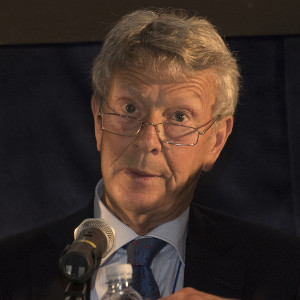
Biography
Hans van Loon, born in Utrecht, the Netherlands, studied law, sociology and international relations in Utrecht, Leiden and Geneva. He practised law before the Supreme Court of the Netherlands before joining the Permanent Bureau of the Hague Conference on Private International Law (1978–2013). Secretary General of the Hague Conference on Private International Law (30 June 1996–30 June 2013).
Member of the Institut de droit international (since 2009). Member of the Groupe européen de droit international privé (GEDIP) (since 1991). Honorary member of the Asociación Americana de Derecho Internacional Privado (ASADIP) (since 2007).
Doctor honoris causa, University of Osnabrück, Germany (2 November 2001).
Abstract
Former SG Hague Conference on Private International Law. Member of the Institut de droit international
“Global and Regional Co-operation on Migration”
Migration is of all times, as people seek to improve their life situation elsewhere (“pull factors”) or to escape lack of economic perspective, persecution, war, human rights violations, and environmental disasters, including climate change (“push factors”). In the 21st century migration has reached an unprecedented scale, both within and across countries, facilitated by instant communication and fast transportation (“network factors”). Cross-border migration occurs both within the large regions of the world and between those regions. According to the UN, in 2015 there were over 240 million international migrants, including 20 million refugees.
The UN 2030 Agenda (2015) explicitly includes migrants and refugees, and the UN General Assembly in 2018 both adopted the Global Compact on Refugees, and endorsed the Global Compact for Safe, Orderly and Regular Migration. These initiatives put migrants and refugees on the global political agenda, yet, as non-binding documents, they constitute above all calls for further action, including for more solid and principled legal frameworks.
The 1951 UN Geneva Convention with its cardinal principle of non-refoulement and minimum standards for the treatment of refugees embodies a universal commitment for international cooperation. How has the Convention been implemented at the global level? What additional work has been accomplished at the regional level, in Latin America (since the 1984 Cartagena Declaration on Refugees), in Europe (with the Common European Asylum System), in Africa and Asia? What more is needed?
Leaving migration of refugees aside, international labour migration (as well as migration caused by environmental issues) is currently a “black hole” in global governance. While we have improved international cooperation for trade and mobility of capital, migration is still essentially left to unilateral national policy making. The 1990 UN Migrant Workers Convention remains ineffective as it has not been ratified by any industrialised country. A proposal for a global legal framework launched at the Hague Conference in 2006 received strong support from Latin America, but no global consensus. What is the situation at the regional level? What more should and can be done?
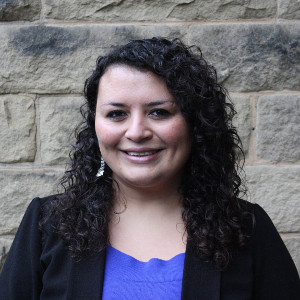
Biography
Dr. Marcia Vera Espinoza is a Lecturer in Human Geography at Queen Mary University of London, UK. Before joining QMUL in September 2018, Marcia was a Postdoctoral Research Associate in the ERC project 'Prospects for International Migration Governance' (MIGPROSP) at the Department of Politics, University of Sheffield, UK. Her research focuses on refugee and migrant integration, migration governance and immigration policies in Latin America. Her work has recently been published in Geopolitics, Global Policy, Forced Migration Review and Development Policy Review. Her upcoming co-edited book ‘The Dynamics of Regional Migration Governance’ will be published in June 2019 by Edward Elgar.
Abstract
The production of knowledge on migration through cross-disciplinary research in Latin America
This presentation reflects on the role of interdisciplinary research in the production of knowledge on migration in Latin America. Ideas about migration can be considered to play a relevant role in immigration politics and policy making. The dimension of ideas, migration narratives and policy frames, has consequently caught increasing scholarly attention. We, however, know less about how knowledge in this field is constituted in the first place. This presentation reflects on the role of academia in producing knowledge on migration and the state of research in the region. Particularly attention will be paid to the challenges and opportunities of cross-disciplinary research as well as the increase of transnational collaborations within and outside the region.

Biography
Jackline Wahba is a Professor of Economics at the University of Southampton in the United Kingdom. She obtained her PhD from the Department of Economics at the University of Southampton. She is a member of the UK Migration Advisory Committee. She is an economist with substantial experience in international migration and labour markets. She leads the migration research within the ESRC Centre for Population Change at the University of Southampton. She has acted as an advisor to several international organisations, including the EC, the World Bank, the African Development Bank and OECD. She is a Research Fellow of IZA, CReAM, and ERF. She is also a member of Europea Academia and is the Managing Editor of the IZA Journal of Development & Migration.
Abstract
Migration in Latin America Workshop Edinburgh, 10 June 2019
Keynote Speech on the Effects of Return Migration on Origin Countries
This keynote speech will provide an overview on return migration. It will begin by documenting the extent of return migration and showing that it is far from negligible. It will discuss briefly the data challenges and the methodological hurdles in measuring return migration. It will then provide a simple framework to understand the determinants of return migration. Focusing then on the role played by returnees in the economic development of their country of origin, it will draw together the small-scattered literature on the contribution of return migration in reducing credit constraints, allowing for brain circulation and gains, and transmitting of norms to sending economies. Through overseas employment, migrants increase their income, acquire new skills and accumulate savings and assets. When migrants return to their country of origin they represent an inflow of both financial capital through accumulated overseas savings and human capital through their new acquired skills and knowledge from working overseas to the country of origin. Furthermore, returnees bring back new ideas and norms that could potentially impact their social, economic and political behaviour. Finally, the talk will underscore the great need for better data measuring and capturing return migration.




